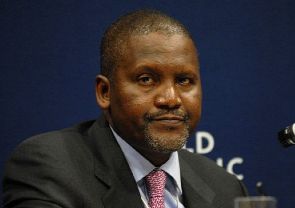Government is counting on the newly-established Construction Bank to bridge the country’s growing housing deficit, decades after the collapse of the construction-oriented Bank for Housing and Construction.
Ghana has an acute housing shortage, with the current deficit estimated to be about 1.7 million housing units, and is expected to hit 2.4million by 2026, if such recommendation by experts and housing developers are not implemented.
Various sources estimate that Ghana’s population could reach 32.2million people by 2020, with about 57 percent living in urban communities.
The Ghana Real Estate Developers Association (GREDA) has, therefore, been advocating for the establishment of a specialised construction bank to address the existing housing challenge.
“We are being stampeded by investors to come and roll programmes to reduce the 1.7million housing deficits. But it comes down to the return on investment.
Where is the return on investment? How can you assure us that if you do about 30,000 housing units, what is the guarantee that we will have a return on investment?,” Mr. Samuel Atta Akyea, Minister for Works and Housing said at the official launch of the bank in Accra.
The new bespoke construction-focused bank, the latest addition to the growing numbers in the country, is a wholly owned indigenous financial institution that seeks to provide banking services in project finance, commercial and consumer banking with specialisation in construction, infrastructure and mortgage financing.
Mr. Atta Akyea said the bank must also assist the country address its sewage problems by funding viable projects in that area.
“You are also a key player in trying to sort out the embarrassing and antiquated sewage problem in the whole country and also a key player in trying to ensure that the sea defence systems are good because the sea is eating our lands.”
Joining a highly competitive industry, the bank believes it is coming in with a unique and cutting edge perspective of being the only commercial bank providing a comprehensive range of commercial banking products and services specific to the construction community.
Mr. Atta Akyea noted that with the arrival of this bank, contractors and construction firms “will no longer have to be marking time at the Ministry of Finance for six good years after the work has been certified by the experts.”
He hoped that the packages the new bank has for the army of investors in the construction industry will cushion them against payment challenges from the government until the financial challenges are fixed and contractors are paid within six months.
“What we want to do with you, which is very important is to continue to dialogue and know what you want to do to help this ministry. I can assure you that we have an open door policy and you are welcomed anytime for us to engage and you give us financial assurances that when we bring in investors you will be able to help them,” he added.
Anthony Carboo, Deputy Minister for Roads and Highways, noted that the bank is a lifeline to his ministry and the ministry is glad to be part of this historic day.
“We promise to work very closely with the bank and its management and that the establishment of this bank is special, timely and purposeful.
I am sure contractors, both in Works and Housing and Roads and Highways, will be very pleased to hear that in 2017, a purposeful bank for construction is here to help our contractors finance their projects and help open up the country,” he said.
Millison Narh, First Deputy Governor of the Bank of Ghana advised that with the capital intensive nature of Construction Bank’s chosen line of business,it will require it to source for long-term funds from both domestic and offshore markets to support its operations.
“The long-term nature of your assets will also require a corresponding long-term funding sources if the bank is to operate on a sound footing.I will urge the board and senior management of the bank to be mindful of this and maintain the right prudential balance,” Mr. Narh said.
The bank’s Board Chair, Asare Akuffo, said the bank appreciates that the quality of infrastructure of a country is one of the key indicators in the measurement of development and called for a concerted and integrated effort by all stakeholders to ensure that the right facilities are in place to propel Ghana’s overall development.
“The bank’s vision is to become the bank of choice for construction and infrastructure development financing through innovation, technology, quality customer care and affordability.
The driving force behind our vision is anchored on our values of open-mindedness, boldness and visionary leadership. These are principles that will inform our decisions and how we collaborate with our clients to contribute our quota to Ghana’s changing development landscape,” he said.
Alhaji Dr. Mahamudu Bawamia, the Vice President, said: “What we have done is that in the context of the Public Financial Management Act, we are going to implement very strictly the Ghana Integrated Financial Management Information System [GIFMIS] system to make sure [state agencies] are only awarding contracts if there is money to pay for those contracts. This is quite a departure from how things have been done previously,” he said.
He adds that, as part of government’s efforts to support the banking sector, three key projects will be undertaken by the end of the year to formalise the economy: a National ID system, a national digital addressing system and a robust interoperable payment system.
The bank’s board members include: Stephen Kpordzie, as the CEO;Vivian Lamptey; Richard Yaw Addo;Major General R.K Poku Adusei- Former Chief of Army Staff; Sally Amoah;and Dr. Amponsah Tawiah.








